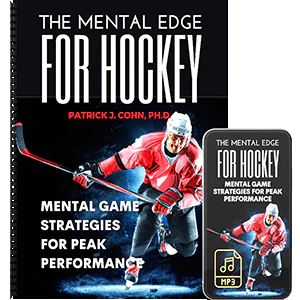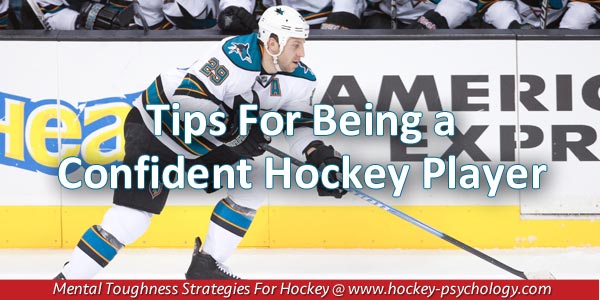How High Expectations Impact Your Confidence
We know a strong relationship exits between high expectations and confidence.
Having high expectations can affect your confidence–which I call the confidence-expectation connection.
When you fail to reach your expectations, confidence can take a hit when you questions your ability.
In addition, if you believe you cannot perform to others’ expectation, you will experience a greater degree of pressure and anxiety during competition.
And you know what lower confidence can do to your game:
–Self-doubt
–Fearful of mistakes
—Focus on negative aspects of your game
–Under-perform during games.
The ultimate result will be a repetitive cycle of pressure, anxiety, under-performance and lower confidence.
Have you Had a Similar Experience?
Maybe a coach has talked to you about your potential and told you that they believe you are on the verge of a breakout season.
Possibly your coach talked to you about their expectation to lead the team to victory or improved stats. Even though your coach believed in you, you just didn’t share the same level of confidence in your ability.
These high expectations can cause you to feel a lot of pressure to perform. After all, you didn’t want to let your coach down.
So you may focus on trying to make some of the weaker aspects of your game into strengths in attempt to rise to your coach’s expectations.
Despite your desire to please your coach, game after game, your performance suffered.
Former 2012 NHL overall draft pick Nail Yakupov understands the effects of trying to live up to high expectations and the effects on confidence.
Yakupov was drafted as a teen and had the future of a franchise hoisted upon his shoulders. The expectation to perform and rescue a franchise is a difficult challenge for any player.
After four lackluster years with the Edmonton Oilers, Yakupov was traded to the St. Louis Blues.
Now, Yakupov is faced with the challenge: Will the trade serve as a fresh start or will the trade become a further blow to Yakupov’s confidence?
St Louis Blues’ head coach Ken Hitchcock plans to set Yakupov up to succeed and foster his confidence.
Hitchcock’s plan for Yakupov is to improve his confidence by allowing him to play to his strengths.
HITCHCOCK: “We’re going at it different than most people think, and that is he [Yakupov] has a skill set and we want to enhance the skill set. The stuff without the puck, it’s going to take time, and we’re in no hurry. We’re not going to turn a player into a defensive specialist… We want to take what his strengths are and get him to really focus on that, and the other stuff is teachable, and we’ll work with him… but what he does well, we want him doing it every day and having the confidence to do it.”
By focusing on strengths, athletes foster confidence.
Aren’t you more confident when you think about all the things you do well?
Try These Tips for Being a Confident Athlete:
Let go of strict expectations you feel others have for your performance. You cannot control the expectations of others but you can create your own personal goals to guide your athletic actions.
Focus on your talents and strengths, not shortcomings. This is a matter of knowing your strengths, maximizing your strengths and game planning to take advantage of your strengths in competitions.
Imagine how much more you could accomplish with the improved mental skill of confidence!
Related Articles on Hockey Mental Game:
- Making Comparisons Hurts Hockey Confidence
- Do You Have Fragile Hockey Confidence?
- Carter Hart’s Stable Confidence
*Subscribe to The Sports Psychology Podcast on iTunes
*Subscribe to The Sports Psychology Podcast on Spotify
The Mental Edge for Hockey

The Mental Edge for Hockey teaches you proven and simple mental game strategies so you can overcome fear of failure, lack of confidence, slumps or poor composure, take your practice game to competition, and boost your confidence in hockey. You learn simple, actionable mental game strategies to help you perform at your peak!
I’ve worked with athletes for 30 plus years – and know the top challenges that undermine performance when you perform in games. Now you can tap into my expertise and experience in coaching hockey players on the mental game.
In this program, you’ll learn the TOP 10 mental training lessons for hockey players – the same strategies I teach one-on-one athletes I coach on the mental game. My clients pay thousands of dollars for personal coaching, but now you can have the same strategies to improve your mental game – at a fraction of the price.

Leave a Reply